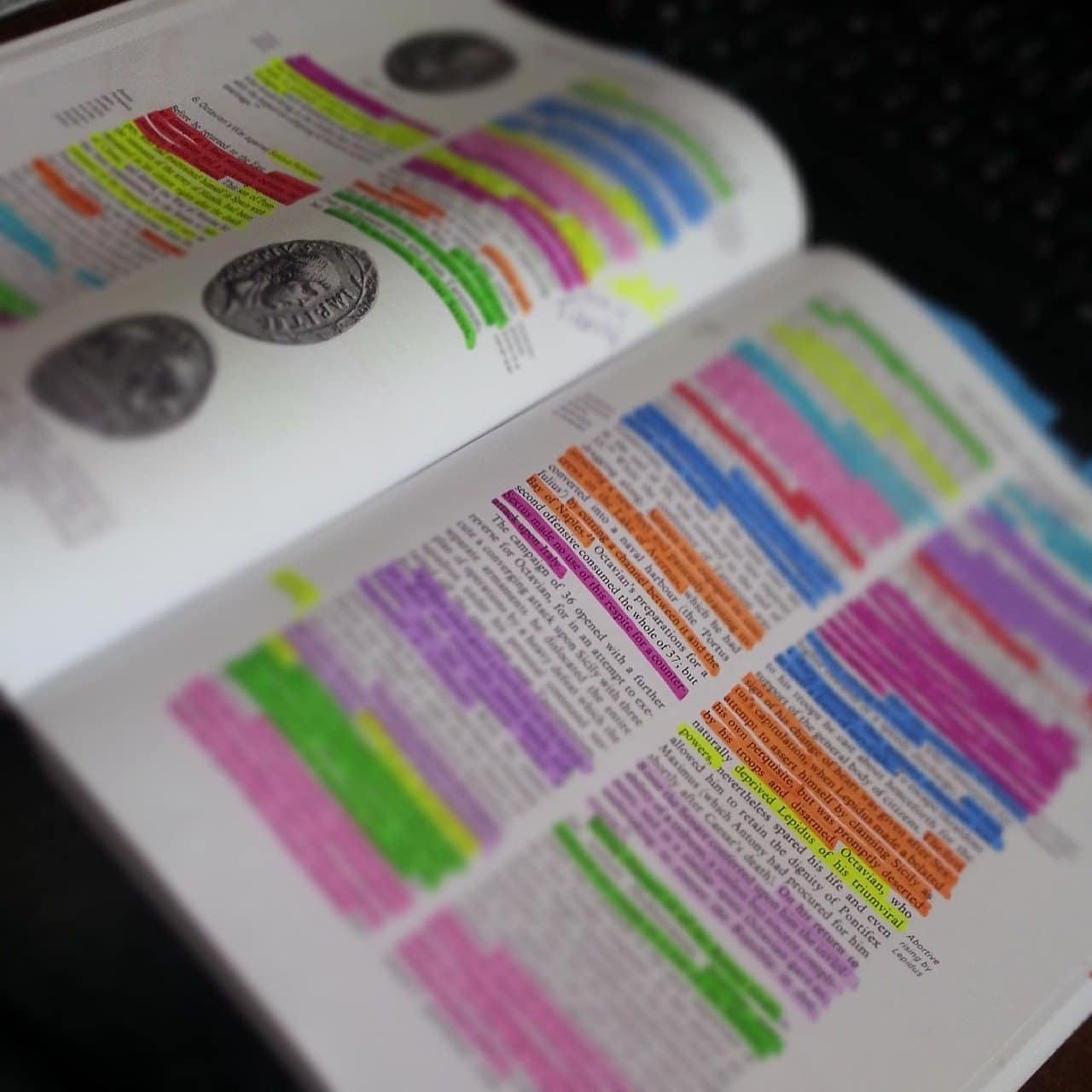
Revise your Revision
Second-year Psychology students participating in the University Honours College follow a workshop on Blogging Science, in which they learn to communicate science to the general public by means of informing, giving an opinion, and relating science to issues in society. A selection of these blog posts is published on Mindwise. Today’s post is by Felix Muessel.
Already in the 1880s, psychologist Hermann Ebbinghaus discovered the underlying principle of the so-called forgetting curve. It is arguably simple: We forget information if we fail to retrieve them repeatedly. As unsurprised as many might be by hearing this, as intrigued am I, that many students nowadays still share summaries in the last minute, re-read their notes before an exam and highlight their books until they shine in every colour of the rainbow.
Ebbinghaus’ discoveries reveal two crucial components of successful knowledge retention, namely time and active engagement. Although the most popular practices – highlighting, re-reading or summarizing – are far from being effective, they suggest progressing with considerable ease. However, while those methods will help to understand a topic, they fail to bring about retention. So, what could you do instead?
Ebbinghaus tried to remember meaningless words by adapting the time interval between learning sessions, depending on whether he remembered a term or not. He found that after each time he was correct, more and more time could pass until he needed to revise the word again and still getting it right. Nowadays, this practice is sometimes referred to as ‘spaced repetition’, and it is by far not the only evidence-based study technique. Therefore, let me introduce you to four practices that outdo simple summarizing, highlighting and re-reading book chapters as revision practices.
(1) Before even reading the first paragraph of a book chapter, try answering questions that you may already have or that are provided at the end of the chapter. Yes, you should answer questions about a topic you cannot know! Basically, the aim is to develop connections between new and existing knowledge. Being able to answer the question correctly is, of course, helpful but not of interest. Just thinking about possible answers will maximize your ability to remember the correct answer later, independent of whether your initial thought was right.
(2) Give personal meaning to your study material by formulating it in your words and developing your own mental images and metaphors. If you can’t grasp a topic because you cannot identify with the example given or the text does not even have an example, construct your own one, for instance including your best friends and family members.
(3) Reflect. Write down what you have learned – naturally without consulting the book – and note questions for what you still want to find answers for. This may be the hardest to implement because who wants to reflect on things that were already dealt with the last few hours. Nevertheless, this will be the moment, where you can obtain a good impression about what you really know and what you just think you know.
(4) Test yourself. Either, by going through flashcards or by developing exam questions on your own and most preferably, using spaced repetition. During my very first semester, I found pleasure in writing flashcards, and until now, it did not change. However, at first, I wrote “analogue” paper flashcards and revised them maximally three times before an exam, sometimes just once. Then, I discovered what became my single most favourite virtual flashcard program, Anki, a program that utilizes Ebbinghaus’ forgetting curve. I never had to think again about which subject would be the best to revise on a given day. Fantastically, the algorithm determined which cards I need to see to continue to remember the information.
Lastly, I wish to address all who are convinced that they will not benefit from the suggested changes in study habits because they think the practices do not fit their “learning type”. Research has shown that the most critical determinant of implementing useful and beneficial study techniques is neither a specific learning type nor pure ability but self-efficacy. However, if neither I nor research findings can change your mind, an authority figure might do:
“It is our choices that show what we truly are, far more than our abilities.”
~ Albus Dumbledore (Rowling, 2000)
Finally, but most importantly, I want to provide a rationale about why I even care about other student’s study habits. Right now, there are plenty of people who would give everything to be able to study their dream subject, but for reasons beyond their ability, they can’t. It is crucial to (re)acknowledge being a student as a privilege. Not every course needs to be everyone’s favourite subject, and accordingly, no student should feel pressured to over-expend. However, nothing less than honest engagement and aiming at self-improvement at whatever level would be a disgrace for everyone who is unjustifiably denied to educate themselves. Detaching from ineffective study habits while getting used to active and lively studying can be a great start, and by now, you have some basic tools to do so.
Links and References
Abdaal, A. (2018, April 4). How to study for exams – Evidence-based revision tips [Video file]. Retrieved from https://www.youtube.com/watch?v=ukLnPbIffxE&t=411s
Anki (n.d.) Retrieved from https://apps.ankiweb.net
Brown, P. C., Roediger III, H. L., & McDaniel, M. A. (2014). Make it stick. Harvard University Press. (https://rug.on.worldcat.org/oclc/880147722)
Carrier, L. M. (2003). College students’ choices of study strategies. Perceptual and Motor skills, 96(1), 54-56. (https://www.researchgate.net/publication/10794878_College_students‘_choices_of_study_strategies)
Dunlosky, J., Rawson, K. A., Marsh, E. J., Nathan, M. J., & Willingham, D. T. (2013). Improving students’ learning with effective learning techniques: Promising directions from cognitive and educational psychology. Psychological Science in the Public Interest, 14(1), 4-58. (https://www.ncbi.nlm.nih.gov/pubmed/26173288)
Hartwig, M. K., & Dunlosky, J. (2012). Study strategies of college students: Are self-testing and scheduling related to achievement?. Psychonomic bulletin & review, 19(1), 126-134. (https://www.ncbi.nlm.nih.gov/pubmed/22083626)
Murre, J. M., & Dros, J. (2015). Replication and analysis of Ebbinghaus’ forgetting curve. PloS one, 10(7). (https://www.ncbi.nlm.nih.gov/pmc/articles/PMC4492928/)
Rowling, J. K. (2000). Harry Potter and the chamber of secrets. New York: Scholastic, Inc.
Wissman, K. T., Rawson, K. A., & Pyc, M. A. (2012). How and when do students use flashcards? Memory, 20(6), 568-579. (https://www.ncbi.nlm.nih.gov/pubmed/22671698)
License under Pixabay.



